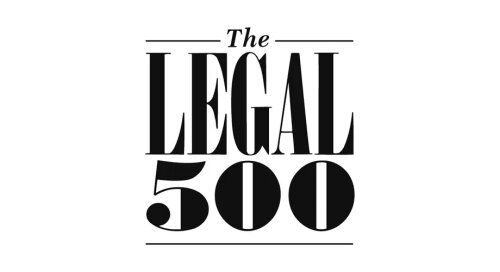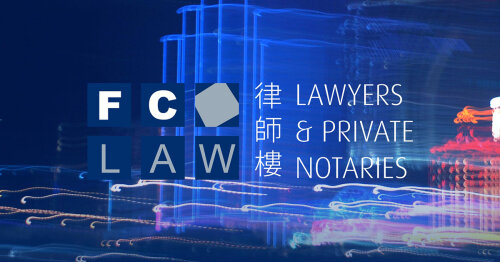Best Whistleblower & Qui Tam Lawyers in China
Share your needs with us, get contacted by law firms.
Free. Takes 2 min.
Or refine your search by selecting a city:
List of the best lawyers in China
About Whistleblower & Qui Tam Law in China
Whistleblower and Qui Tam laws are crucial components for maintaining accountability and ethical practices within both governmental and private sectors. In China, whistleblower laws are designed to protect individuals who report illicit activities such as fraud, corruption, or violations of safety and compliance regulations. Although China does not have a legal framework that directly mirrors the Qui Tam provisions common in the United States, there is an evolving regulatory environment aimed at fostering transparency and ethical conduct.
Why You May Need a Lawyer
In the field of Whistleblower & Qui Tam, legal assistance may be crucial due to the complex nature of the laws and possible implications for the whistleblower. Common situations where legal help might be required include:
- Navigating through legal protections offered for whistleblowers under Chinese law.
- Understanding your rights and obligations before disclosing any sensitive information.
- Handling any potential repercussions or retaliation resulting from whistleblowing activities.
- Assisting in the collection and presentation of evidence to support your claims.
- Advising on the regulatory requirements and procedures applicable to specific cases.
Local Laws Overview
Whistleblower protections in China are primarily governed by various individual regulations and guidelines issued by government bodies, rather than a comprehensive statutory framework. Some key aspects include:
- The Anti-Unfair Competition Law and other similar laws that promote fair competition and tackle corruption, bribery, and fraudulent practices.
- The Regulations on Open Government Information, which encourage transparency and public participation in government accountability.
- Local governmental directives that define categories of reportable misconduct and offer protection against retaliatory action.
Frequently Asked Questions
What does it mean to be a whistleblower in China?
Being a whistleblower in China involves reporting illegal or unethical activities within an organization, potentially resulting in legal proceedings or regulatory actions.
Do whistleblowers in China have legal protection?
Yes, several regulations offer protections to whistleblowers in China, but the safeguards may not be as comprehensive as those in other countries. Legal advice can help navigate these protections.
What kind of activities should be reported?
Activities that can be reported include corruption, bribery, fraud, environmental violations, and breaches of safety regulations.
Can foreign nationals act as whistleblowers in China?
Foreign nationals can report violations, but the protections may vary, and seeking legal consultation is advisable to understand potential implications.
How anonymous can whistleblowing be?
While many channels offer anonymous reporting, maintaining anonymity cannot be completely guaranteed due to the nature of investigations and disclosures.
Is there any monetary reward for whistleblowers in China?
Some local regulations provide financial incentives for whistleblowers, particularly for significant contributions to exposing major violations.
What are the risks of being a whistleblower?
Potential risks include retaliation, demotion, or legal challenges. It is essential to get legal advice to mitigate these risks.
How does the whistleblower process work?
The process typically involves reporting the misconduct through official channels, which then initiate investigations or legal proceedings as necessary.
What evidence is needed to support a whistleblower claim?
Evidence can include documents, communications, or witness testimonies that corroborate the claims of misconduct or illegal activities.
Can whistleblower disclosures be made public?
Disclosures are generally handled confidentially by relevant authorities; however, some information may become public during legal proceedings.
Additional Resources
For those seeking more information or assistance, consider contacting the following resources:
- The National Bureau of Statistics for economic and industry statistics that can provide context for potential cases.
- The State Administration for Market Regulation for guidance on anti-unfair competition and other regulatory issues.
- Local legal aid services that provide confidential advice for whistleblowers.
Next Steps
If you require legal assistance in Whistleblower & Qui Tam matters in China, consider taking the following steps:
- Research and contact a lawyer who specializes in whistleblower legislation.
- Prepare all relevant documentation and evidence related to your case.
- Arrange a confidential consultation to discuss your situation and obtain professional advice.
- Follow legal advice to ensure your rights are protected throughout the process.
Lawzana helps you find the best lawyers and law firms in China through a curated and pre-screened list of qualified legal professionals. Our platform offers rankings and detailed profiles of attorneys and law firms, allowing you to compare based on practice areas, including Whistleblower & Qui Tam, experience, and client feedback.
Each profile includes a description of the firm's areas of practice, client reviews, team members and partners, year of establishment, spoken languages, office locations, contact information, social media presence, and any published articles or resources. Most firms on our platform speak English and are experienced in both local and international legal matters.
Get a quote from top-rated law firms in China — quickly, securely, and without unnecessary hassle.
Disclaimer:
The information provided on this page is for general informational purposes only and does not constitute legal advice. While we strive to ensure the accuracy and relevance of the content, legal information may change over time, and interpretations of the law can vary. You should always consult with a qualified legal professional for advice specific to your situation.
We disclaim all liability for actions taken or not taken based on the content of this page. If you believe any information is incorrect or outdated, please contact us, and we will review and update it where appropriate.
Browse whistleblower & qui tam law firms by city in China
Refine your search by selecting a city.
















